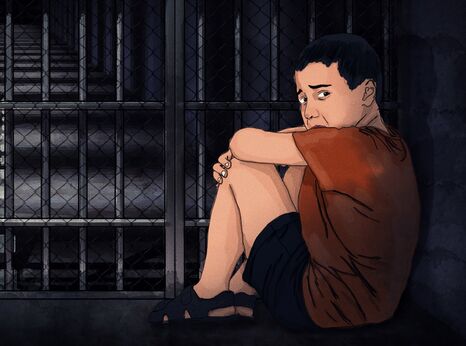Journalist complains of abuse in prison

Solafa Magdy, Hossam el-Sayed and Mohamed Salah are freelance journalists working for different media outlets. The three are under investigations by the Supreme State Security Prosecution (SSSP), a special branch of the Public Prosecution responsible for prosecuting crimes that relate to “state security”, as part of case No. 488 of 2019, which is connected to the March 2019 anti-government protests. Solafa Magdy and Hossam el-Sayed are facing trumped-up charges of “joining a terrorist group” and “spreading false news”, while Hossam el-Sayed is accused of “membership in a terrorist group”.
On 30 August 2020, Solafa Magdy was brought in front of the SSSP for questioning in connection to a new case (No. 855/2020). She was accused of “joining a terrorist group”, “spreading and broadcasting false rumours” and “misuse of social media”. When asked about the charges, Solafa Magdy exercised her right to remain silent. In response to the prosecutor’s question on the reason for her silence, she noted that she saw no difference between this investigation and her initial investigation over similar accusations in relation to case (No.488/2019). Case No. 855/2020 also includes other prisoners of conscience, already held in pre-trial detention in relation to separate investigations into similar unfounded “terrorism”-related charges, such as human rights defender Mahienour el-Masry, journalist Esraa Abdelfattah and human rights lawyer Mohamed el-Baqer. According to information gathered by Amnesty International, prosecutors based their accusations against Solafa Magdy and the other prisoners of conscience mainly on National Security Agency (NSA) investigations case files, which defendants and their lawyers were not allowed to examine. In recent months, the SSSP has been increasingly bypassing court or prosecution decisions to release detainees held in prolonged pre-trial detention by issuing new detention orders covering similar charges.
Solafa Magdy has previously faced discriminatory treatment in al-Qanater Prison for women. Prison authorities have prevented Solafa Magdy’s mother from sending her money, food and sanitizers from 12 April until 29 April 2020, when prison visits were suspended owing to COVID-19 restrictions. Other prisoners were allowed to receive packages from their relatives during this period. Further, unlike most other inmates in al-Qanater Prison, Solafa Magdy was also unable to send or receive letters during the suspension of prison visits, effectively rendering her detention incommunicado.
On 1 February 2021, the Ministry of Interior published a statement denying allegations that Solafa Magdy has been subjected to ill-treatment and is in poor health and blaming the Muslim Brotherhood of spreading false information. Her lawyers’ request to refer her to forensics to examine her injuries has not been granted.
Since President Abdel Fattah al-Sisi came to power, the authorities have cracked down on independent reporting and arbitrarily blocked hundreds of websites, raided and/or closed the offices of at least nine media outlets and arbitrarily detained scores of journalists. The arrests of Solafa Magdy, Hossam el-Sayed and Mohamed Salah came in the context of the post-September 2019 protest crackdown, the largest on dissenting voices since 2014. Amnesty International has documented how Egyptian security forces carried-out sweeping arrests of peaceful protesters, journalists, human rights lawyers, activists and political figures in a bid to silence critics and deter further protests.
Torture and other ill-treatment are prohibited under the International Covenant on Civil and Political Rights, to which Egypt is a state party. Intentional acts by state agents that inflict “severe pain or suffering”, whether physical or mental, for such purposes as punishment, coercion or intimidation, obtaining a “confession”, or for any reason based on discrimination constitute torture.